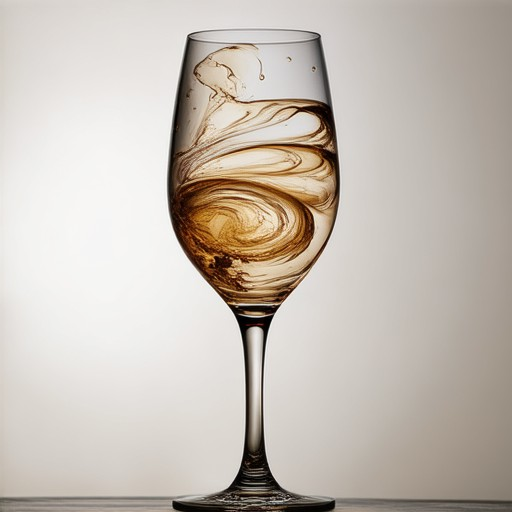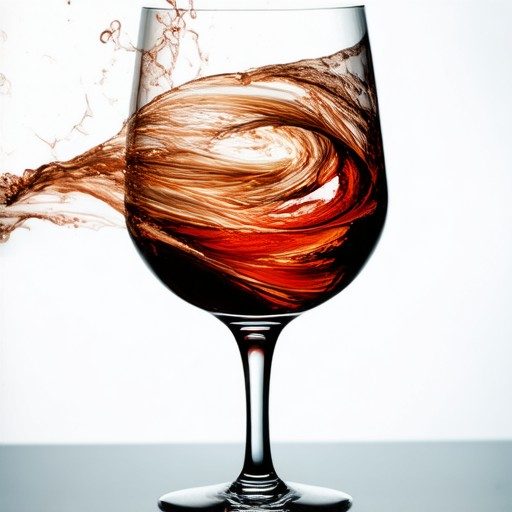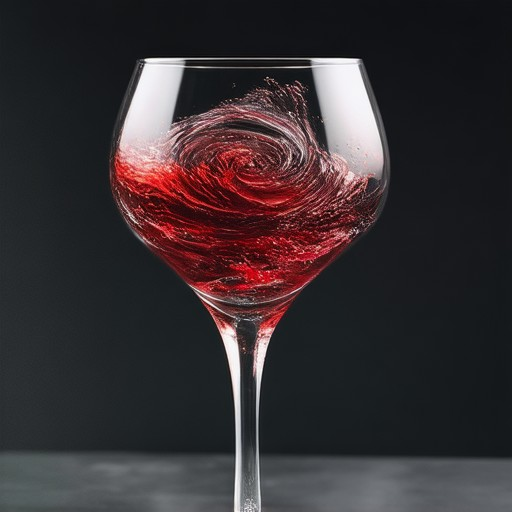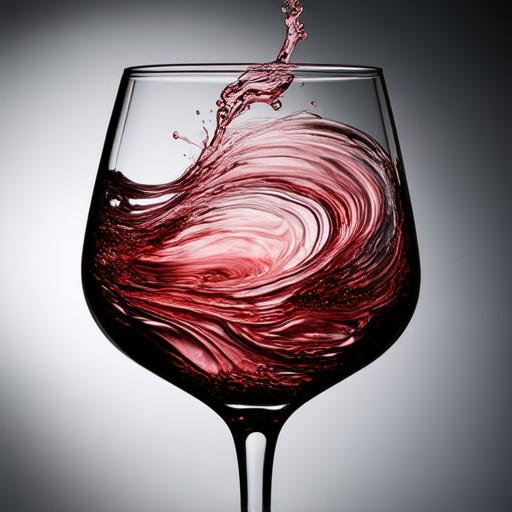Curious about mastering wine flavor like a pro? Whether you’re a seasoned wine enthusiast or new to the world of wine tasting, finding the right tools and techniques can take your expertise to the next level. With a wide array of wine tasting kits designed specifically for experts, there’s no shortage of options to help you refine your palate and explore the complexities of different wines. From advanced tasting sets to blind tasting challenges, these kits offer everything you need to sharpen your skills and enjoy the process with confidence. In this guide, we’ll dive into the best wine tasting kits for experts, tips for perfecting your technique, and how to organize fun and educational tasting sessions right at home. Get ready to embark on a journey to master the art of wine tasting like a true expert!
Key Takeaways
– What is a Wine Tasting Expert Called?
A wine tasting expert is known as a sommelier, a professional skilled in selecting and recommending wines, enhancing dining experiences through deep wine knowledge.
- How Can Sommeliers Earn Competitive Salaries?
Sommeliers earn significant income based on location, experience, and establishment reputation, with opportunities for advancement through certifications like the Court of Master Sommeliers.
- What Are the Challenges of Becoming a Sommelier?
Mastering the sommelier exam requires strong knowledge of wine regions, grape varieties, and sensory skills, with varying pass rates across different levels.
- Where Can You Find Resources to Improve Your Wine Skills?
Explore wine courses and tasting guides from Fine Vines to elevate your expertise and master wine flavor.

How to Become a Professional Wine Taster
To embark on the journey of becoming a professional wine taster, also known as a sommelier, follow these organized steps:
- Understand the Basics : Start by learning the fundamentals of wine, including grape varieties, regions, and winemaking processes. This foundation will provide you with the knowledge needed to recognize different wines.
- Develop Your Senses : Taste a variety of wines to train your palate. Pay attention to aroma, flavor profiles, and texture. Practice identifying common wine characteristics.
- Study Sommelier Standards : Many countries offer certifications, such as the Court of Master Sommeliers exams. These certifications can enhance your credibility and provide structured learning opportunities.
- Gain Practical Experience : Work in restaurants or bars where you can interact with different wines. This hands-on experience will help you apply theoretical knowledge to real-world situations.
- Network with Professionals : Attend wine tastings, trade shows, and industry events to connect with experienced sommeliers. Learning from others can accelerate your development.
- Stay Updated : The wine industry evolves constantly. Keep up with trends, new regions, and emerging varietals through reading, attending workshops, or joining online forums.
- Practice Regularly : Dedicate time daily to taste and analyze wines. This consistent practice will improve your ability to discern subtle differences between wines.
- Consider Specialization : Decide whether you want to focus on specific wine regions, grape varieties, or wine styles. This specialization can set you apart in the industry.
- Build a Portfolio : Create a collection of wines that showcase your expertise. This portfolio can be used for presentations, tastings, or career opportunities.
- Seek Feedback : Share your knowledge with peers or professionals to get constructive criticism. This feedback will help you identify areas for improvement.
By following these steps, you can develop the skills and experience necessary to become a proficient wine taster and contribute meaningfully to the culinary world.
How to Taste Wine Like an Expert
To taste wine like an expert, start by understanding the fundamentals of wine appreciation. Here’s a step-by-step guide:
- Examine the Color and Clarity: Look at the wine’s appearance. The hue varies by grape variety and age, while clarity indicates freshness. FineVines experts suggest checking for any sediment, which can affect flavor.
- Swirl the Wine Gently: Hold the glass by the stem and rotate it clockwise to release trapped aromas. This technique aerates the wine and enhances bouquet.
- Sniff the Aromas: Take short, concentrated sniffs to identify fruity, floral, or spicy notes. Pay attention to the nose for hints of oak, earth, or citrus.
- Taste the Wine: Sip from the glass and let the wine coat your mouth. Swish it around to mix with saliva, which helps release flavors and textures. Note the attack (first impression), mid-palate (body), and finish (aftertaste).
- Evaluate the Finish: After swallowing, consider how the wine lingers. A longer finish indicates better quality and balance.
For a more refined experience, consider these tips from FineVines experts:
- Serving Temperature: Serve most wines between 55°F and 65°F (13°C to 18°C). Whites and lighter reds may be slightly cooler, while bold reds like Cabernet Sauvignon should be slightly warmer.
- Glassware: Use a suitable wine glass to maximize aroma and flavor. FineVines recommends glasses shaped to concentrate wine aromas and enhance the drinking experience.
- Spit or Swallow: In professional settings, spitting is acceptable to preserve the wine for others. Otherwise, swallow to enjoy the finish fully.
By following these steps, you’ll develop a refined palate and appreciate wine’s complexity. Remember, the goal is to enjoy the wine, whether you’re at a casual gathering or a fine dining event. Explore more wine tasting tips and expert insights at FineVines.net .

What are the 5 S’s of wine tasting?
- Sniff – Take a moment to inhale the wine’s aroma. This helps identify the wine’s bouquet and overall character.
- Swirl – Swirl the wine in your glass to release trapped aromas and allow them to develop properly.
- Sip – Take a small sip to experience the wine’s flavor profile, including notes of fruit, spice, or earthiness.
- Spit – If you prefer, spit the wine into a spitoon to avoid overwhelming your palette or to manage large tastings more effectively.
- Slurp – Drink the wine quickly through your nose to engage with the texture and mouthfeel, often accompanied by a “slurping” sound.

What is a Wine Tasting Expert Called?
A wine tasting expert is commonly referred to as a Sommelier . This professional plays a crucial role in selecting and recommending wines, particularly in fine dining establishments. They possess extensive knowledge of wine regions, grape varieties, and food pairings, making them invaluable for enhancing dining experiences. Additionally, the term wine taster is sometimes used, particularly in contexts involving wine tastings, competitions, or events. Both roles emphasize a deep understanding of wine, though their applications may differ slightly depending on the setting.
Sommeliers and Their Earnings
Sommeliers, professionals who specialize in wine selection and service, often earn competitive salaries depending on their experience, expertise, and the type of establishment they work in.
- Factors Influencing Income:
- Location: Sommeliers working in high-end restaurants or luxury hotels may earn significantly more due to the premium placed on their services in upscale settings.
- Experience: With years of experience, sommeliers can negotiate higher wages, especially those with extensive knowledge of rare wines or exceptional tasting skills.
- Establishment Reputation: Working at a Michelin-starred restaurant or a prestigious hotel can lead to higher pay packages compared to less renowned venues.
- Job Roles and Salaries:
- Wine Stewards: These roles typically start at lower salaries but offer opportunities for advancement into higher-paying positions.
- Sommelier Managers: Those responsible for overseeing wine programs in large establishments may earn six-figure incomes, particularly in high-end hospitality settings.
- Advancement Opportunities:
- Pursuing certifications like the Court of Master Sommeliers can enhance earning potential and career prospects.
- Working in diverse regions, such as Europe or Asia, can expose sommeliers to higher-paying markets and exclusive clientele.
Overall, sommeliers have the potential to earn substantial income, especially when combined with experience, certifications, and a strong network in the wine industry.
For more insights into wine-related careers and professional development, visit Fine Vines to explore resources and opportunities in the world of wine.

How Hard Is the Sommelier Exam?
The difficulty of the sommelier exam varies depending on the level and the candidate’s preparation. Here’s a breakdown of what to expect:
Exam Structure and Requirements
The sommelier exam typically consists of theoretical and practical components. Candidates must demonstrate knowledge of wine regions, grape varieties, food pairings, and service standards. The exam may include multiple-choice questions, tastings, and practical evaluations.
Preparation Tips
To succeed, candidates should study extensively, attend wine courses, and practice tasting techniques. Understanding wine terminology, regional differences, and proper service protocols is crucial. Fine Vines offers comprehensive wine courses and tasting guides to aid preparation.
Pass Rates
Pass rates vary significantly across levels:
– Level 1: Approximately 90% pass rate
– Level 2: Around 66% pass rate
– Level 3 (Advanced): About 25% pass rate
– Level 4 (Master): Roughly 5% pass rate
Challenges
Sommelier exams challenge candidates in areas like memorization, sensory skills, and theoretical knowledge. Consistent practice, a strong foundation of wine knowledge, and confidence in tasting analysis are key to success.
Conclusion
While the exams are demanding, many candidates find them rewarding. With proper preparation and dedication, anyone committed to mastering wines can achieve their goals. Explore our wine courses and tasting guides to get started today!
For more resources, visit Fine Vines Wine Courses or check out our Tasting Guides .



0 Comments